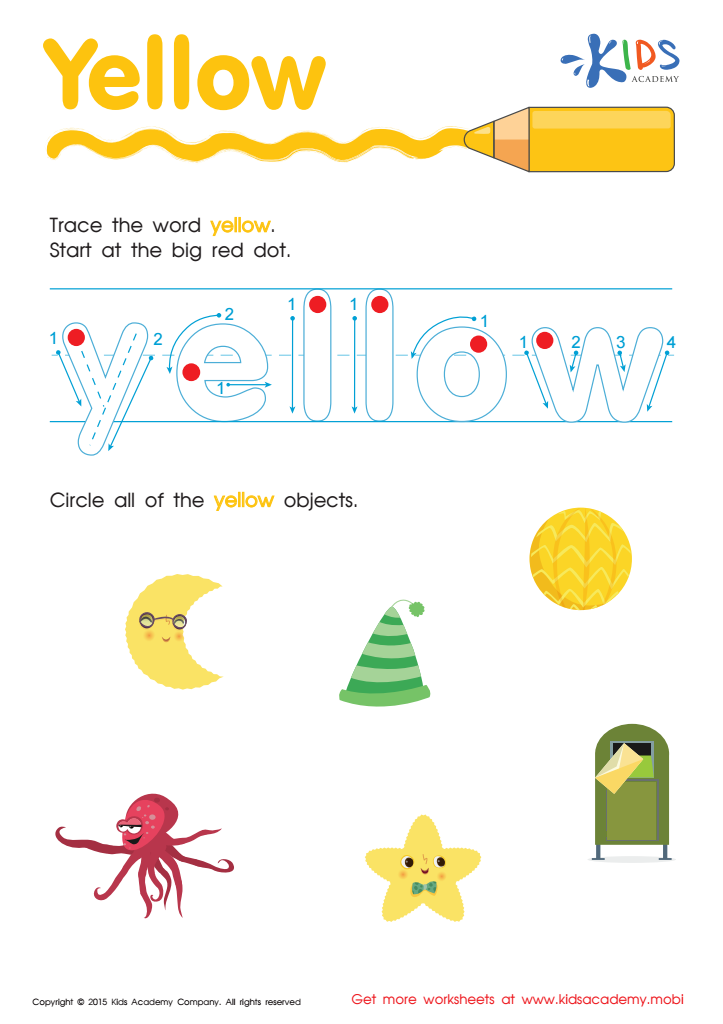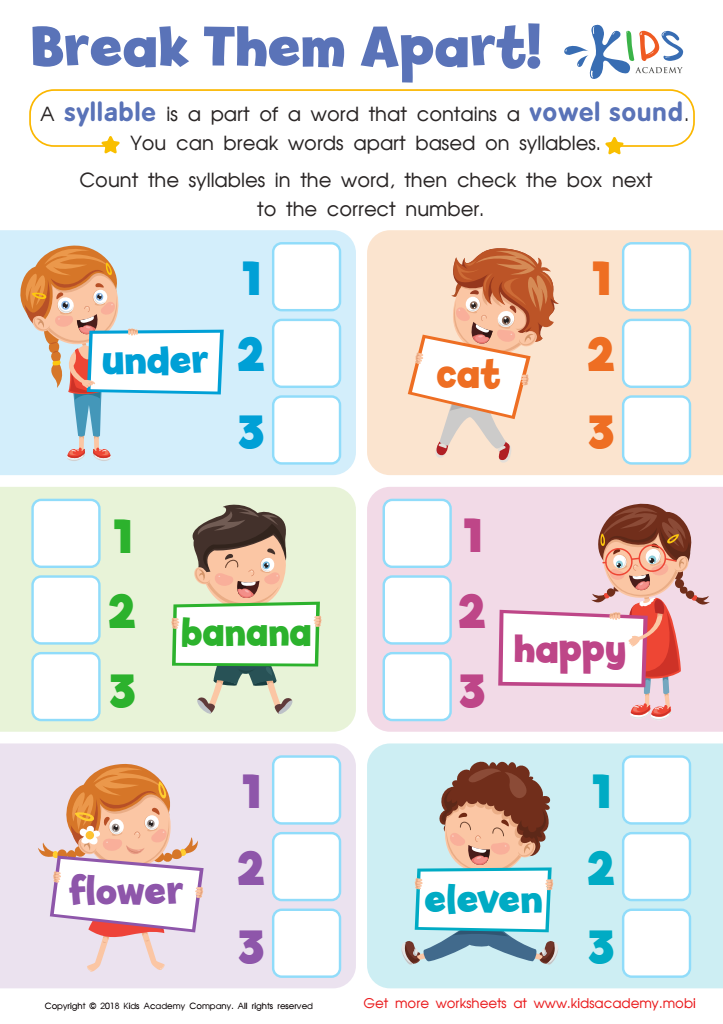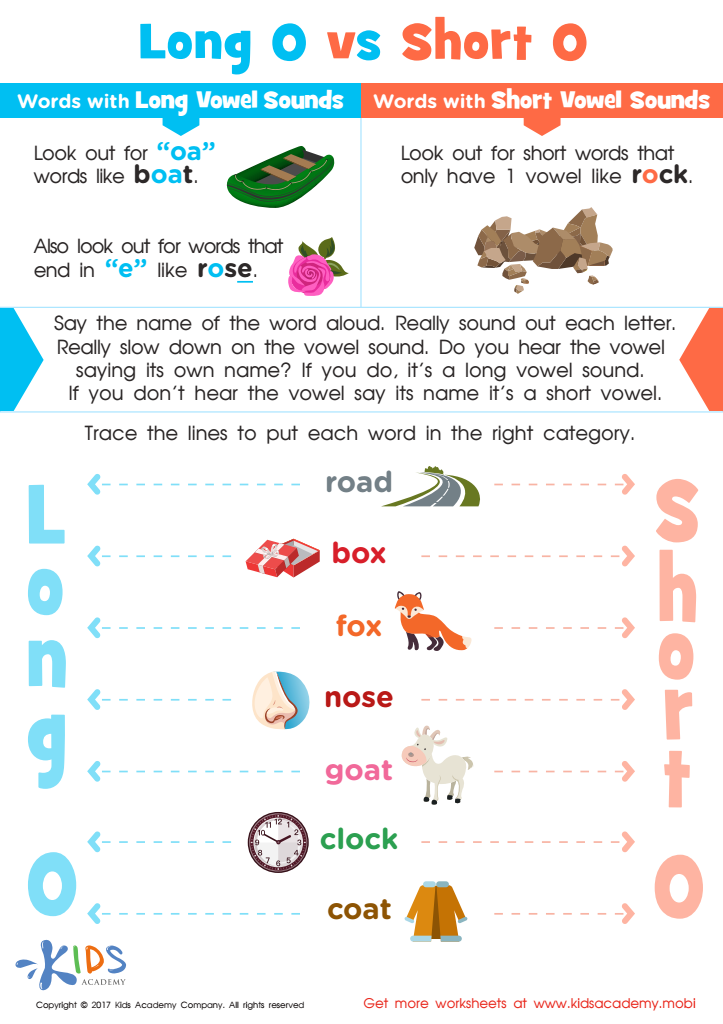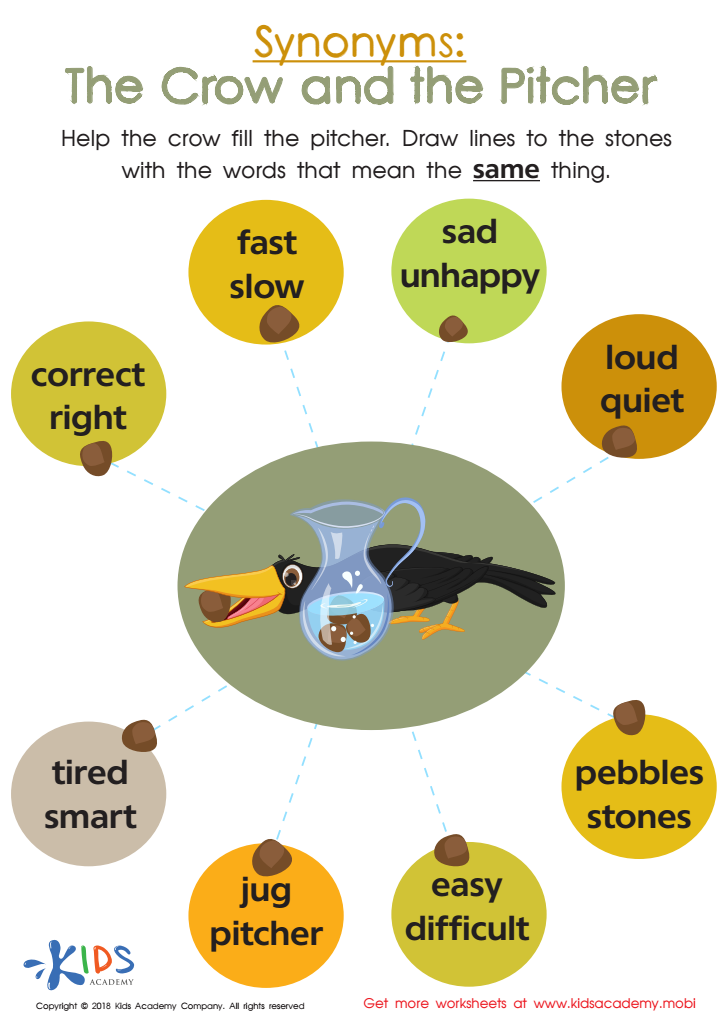Vocabulary development Writing Worksheets for Ages 8-9
5 filtered results
-
From - To
Enhance your child's word mastery with our "Vocabulary Development Writing Worksheets for Ages 8-9". Designed to make learning both fun and effective, our worksheets cover a wide range of engaging exercises to help young writers expand their vocabulary. From synonyms and antonyms to context clues and word definitions, each activity aims to boost reading comprehension and writing proficiency. Perfectly tailored to the cognitive level of 8-9-year-olds, these resources provide ample practice for confident communication. Visit us at Kids Academy to discover a treasure trove of vocabulary-building tools that ignite curiosity and foster a love for words.


Yellow Tracing Color Words Worksheet


Phonics and Word Recognition: Assessment 3 Worksheet


Reading: Break Them Apart Worksheet


Long and Short Vowel O Spelling Worksheet


The Crow and the Pitcher Synonyms Worksheet
Vocabulary development in children aged 8-9 is crucial for several reasons that parents and teachers should consider seriously. At this age, students begin to encounter more complex texts and concepts in both their reading and writing. A robust vocabulary empowers them to understand these new materials more effectively, leading to overall academic success.
Moreover, a well-developed vocabulary enhances children's ability to express their thoughts and ideas clearly and precisely, crucial skills for not just academic writing but effective communication in general. This holistic growth in language abilities fosters greater self-confidence and participation in classroom activities, discussions, and written assignments.
Additionally, vocabulary growth is closely linked to reading comprehension. Children with expansive word banks are better equipped to infer meanings, make connections, and draw conclusions from texts, aiding in deeper understanding and retention of information.
Lifelong learning also benefits from a strong early vocabulary. When children are equipped with a rich set of words, they are more likely to engage in intellectual curiosity and critical thinking. Sharing new words, exploring contexts, and enjoying the beauty of language become habitual, adding depth to their personal and academic lives.
In summary, nurturing vocabulary development improves not just literacy but overall cognitive and social growth, laying a solid foundation for future academic and life achievements.
 Assign to My Students
Assign to My Students





















